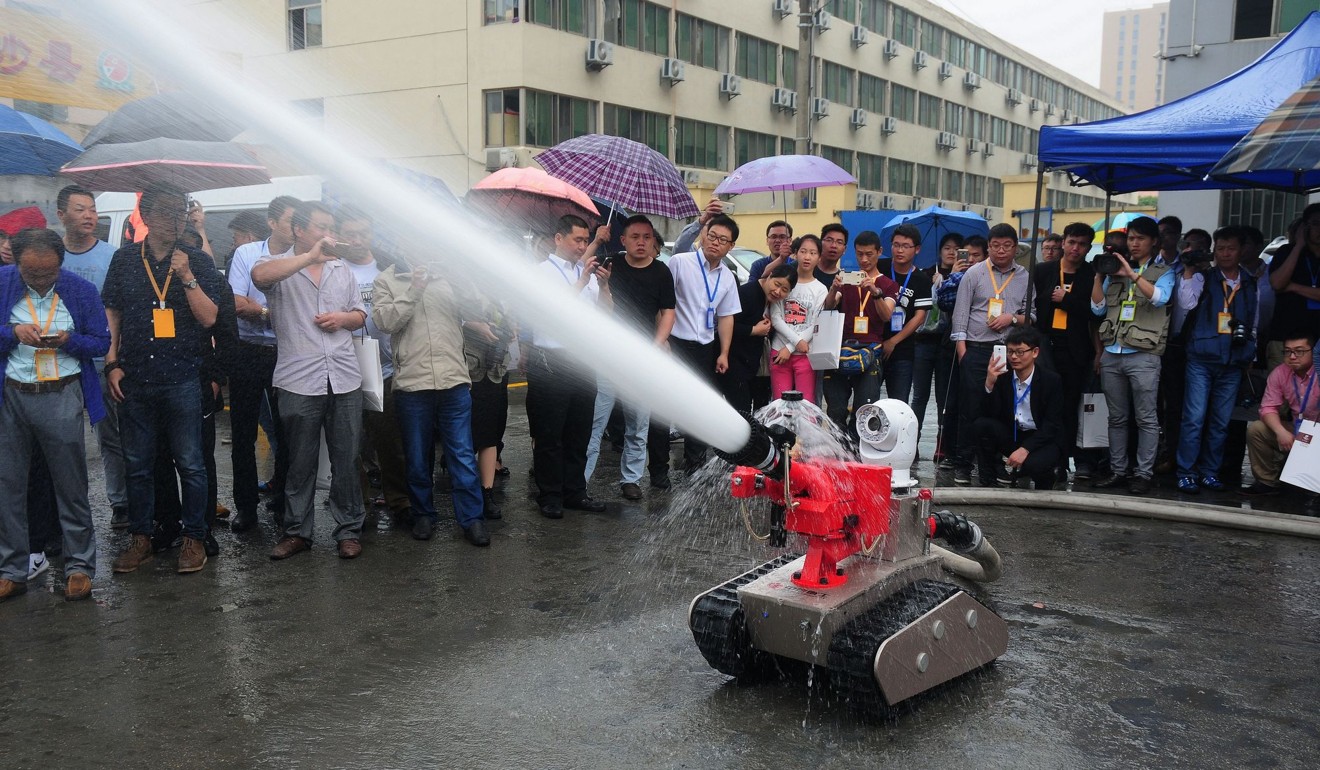
After Beijing and Shenzhen, which are China’s rising tech hubs?
Landlocked cities such as Guizhou and Chengdu are among the 17 tech hubs designated by Beijing to spur innovation and transition the country into a tech powerhouse
As the big boys in the “Silicon Valleys of China” – Beijing, Shanghai and Shenzhen – awe the world with multi-billion ventures, several second- and lower-tier cities have quietly blossomed to become some of the country’s fastest-growing hi-tech hubs.
Guiyang, a south-western city which has until recently been known more for its widespread poverty than its burgeoning innovation, is one such city.
In 2015, the city became home to China’s first big data pilot zone, a move by the central government to boost the industry and nurture leading enterprises in big data sharing and innovation.
Last month, Apple announced that it would invest US$1 billion in building a data centre in Guiyang, provincial capital of Guizhou.
US chip giant Qualcomm has also set up a joint venture with the Guizhou provincial government, called Huaxintong, to make server chips in 2016. Qualcomm has invested close to 2 billion yuan in the venture so far.

Today, the city is home to international technology firms such as PC companies Dell and IBM. Chinese IT giant Huawei also operates a research centre in Chengdu.
“With strong policies and government grants, Chengdu has developed its technology scene fairly quickly,” said Liang Zhen, chief executive of Chengdu-based Microwind Accelerator, which partners Microsoft and has over 40 companies under its wing.
With strong policies and government grants, Chengdu has developed its technology scene fairly quickly
“Furthermore, Chengdu’s cost of living, and real estate prices are more balanced compared to [big cities like Beijing or Shanghai], and it is cheaper for firms to do their research and development here,” he added.
Chengdu also boasts one of China’s most successful Hi-tech Industrial Development Zone, or now known as Chengdu National Innovation Demonstration Zone – areas designated by the government where science and technology can be developed.
The hi-tech zone houses Tianfu Software Park, which runs its own incubator and has over 200 start-ups under its roof.
Tianfu Software Park also hands out about 100 million yuan (US$14.9 million) in subsidies to early-stage start-ups and more than 1 billion yuan in overall subsidies, including free office space to selected companies.
One of its most well-known start-ups is Camera 360, a wildly popular selfie app which lets users retouch photos on their smartphones.
Edith Yeung, 500 Startups’ Greater China partner and the former marketing head of Chinese start-up Dolphin Browser, recalled a time where Dolphin was offered free office space and subsidies by Chengdu’s local government to shift their company headquarters to the city.
“The government is really trying to push innovation and start-ups and technology … many Chinese cities now are trying to brand themselves [as a technology hub],” said Yeung. “They all want to [produce] the next Alibaba.”
E-commerce juggernaut Alibaba was born in Hangzhou, the capital of eastern China’s Zhejiang province, a city that is also quickly becoming renowned for its e-commerce start-ups. Alibaba owns the South China Morning Post.
The government is really trying to push innovation and start-ups and technology … many Chinese cities now are trying to brand themselves [as a technology hub]
A report by Hangzhou-based venture capital firm Vision Plus Capital found that the number of new start-ups in the city surged 107 per cent in the second half of 2014, shortly after Alibaba went public.
In the same time period, Beijing and Shanghai saw a 64 per cent and 53 per cent growth in new companies, according to the report.
“There is really good talent in Hangzhou, with many ex-employees from Alibaba or Ant Financial leaving the companies to start their own businesses,” Yeung said.
Companies started by ex-Alibaba or Ant Financial employees include Xiami Music, which was acquired by Alibaba in 2013, as well as mobile financial app Tongbanjie. Both companies are headquartered in Hangzhou.

Hangzhou has not only Alibaba, but also Zhejiang University, one of China’s most prestigious institutions. The presence of a top university enables start-ups to recruit high-level talent that can help advance their businesses, Yeung said.
With capital inflows came talent, or the return of it.
Guizhou native Huang Xiaochuan, a software engineer who worked in Beijing for three years, recently moved back to Guiyang to take a position in a technology firm.
“It surprised me that I could find a job in my home city that paid me as much as what I was earning in Beijing,” said Huang. “The air is fresh here, real estate is not expensive and I can take care of my parents.”
“Many people believe that Guizhou is very poor. That may be true 15 years ago,” he said. “Today the situation is totally different. The city is becoming richer and there is a demand for talent.”


